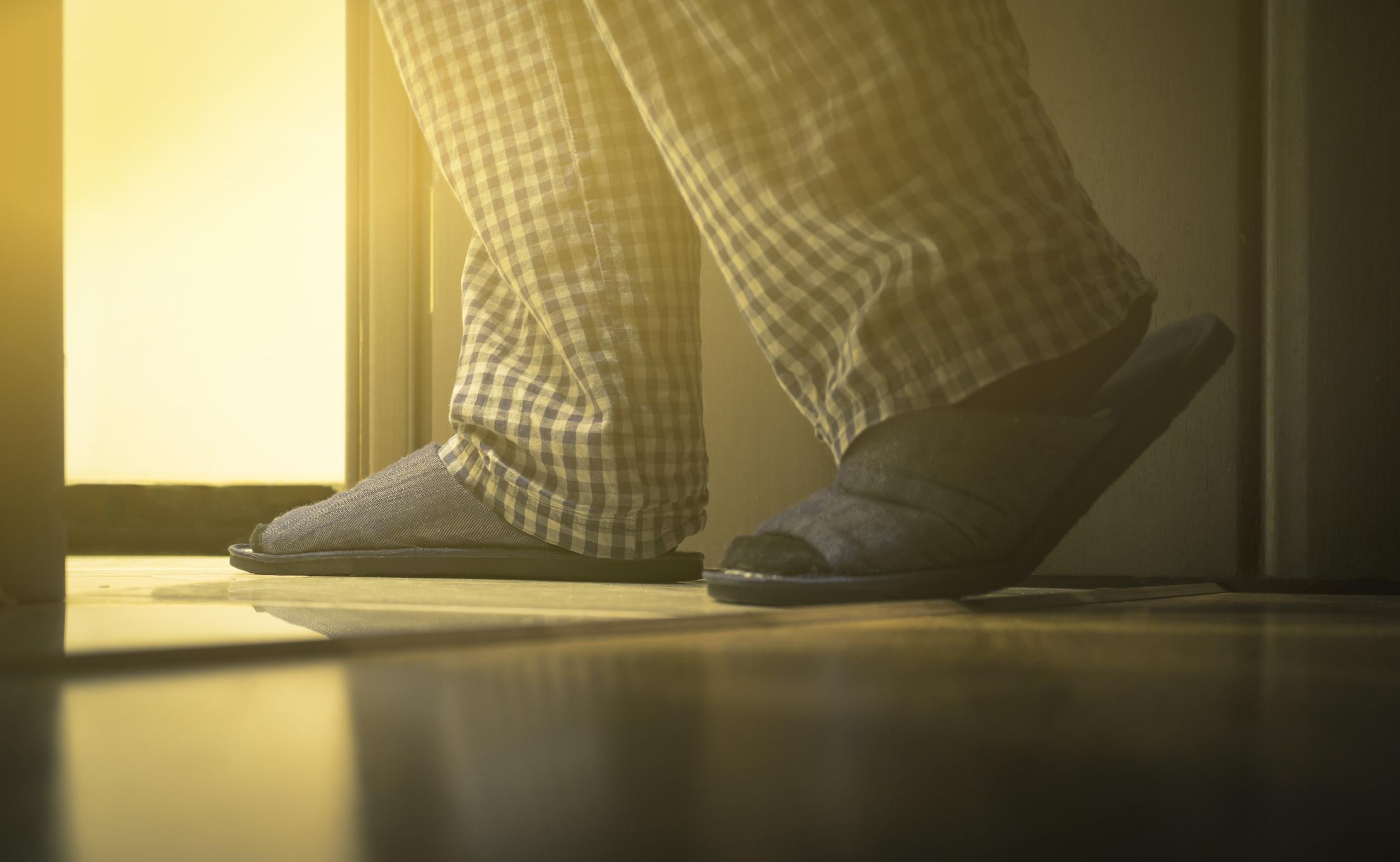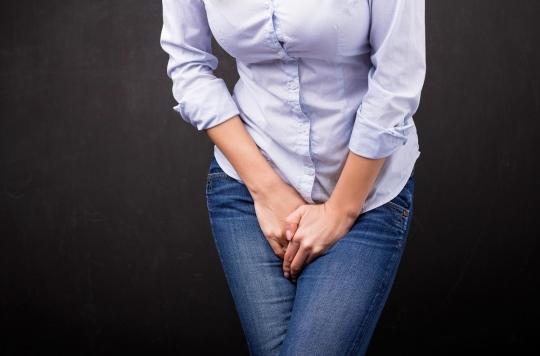
In case of persistent pain always go to the doctor
There can be many reasons that peeing hurts. We list thirteen of them.
1. Bladder Infection
Frequent need to go to the toilet, a burning sensation when urinating, only passing a few drops, cloudy urine. That points to a bladder infection. The bacteria that cause cystitis – in medical terms cystitis – can penetrate the urinary tract in two ways. Via the circulatory system and, which is much more common, from the outside via the urethra. A bladder infection can go away on its own by drinking plenty of water. Complications with a bladder infection in the form of kidney infection occur. Therefore, always go to the doctor if a bladder infection does not clear up within a week. The doctor will likely prescribe antibiotics. If a man has a urinary tract infection, antibiotics are always necessary.
2. Kidney Pelvic Inflammation
Sometimes a bladder infection travels to the kidneys and you get kidney infection. But pelvic inflammatory disease (also called pyelonephritis) is usually caused by bacteria. It is a very painful condition. You can suddenly become ill with a high fever and chills, nausea, vomiting and thus painful urination. With a kidney infection, your urine is cloudy and sometimes contains blood. Sudden dull pain in your back or she is also one of the symptoms. A course of antibiotics often provides quick and noticeable relief from the symptoms. So go to the doctor!
3. Bladder Pain Syndrome
Bladder pain syndrome – also called interstitial cystitis (IC) – is a rare and painful form of chronic bladder infection that is not caused by a bacterial infection. It mainly occurs in women. In interstitial cystitis, the wall of the bladder is irritated, making it less easy to stretch and reducing the capacity of the urinary bladder. This causes the painful ‘full bladder feeling’. The bladder pain syndrome often starts as a bladder infection with pain in the lower abdomen or groin, constant urgency and frequent urination. A course of antibiotics appears to be of little or no help. The complaints do not go away; they even worsen slowly. Usually there is a stabbing pain in the lower abdomen, often also in the vagina. Sometimes the pain moves to the groin or back. The actual cause is unknown. It is possible that the body’s own immune system is sick and that is why the bladder tissue is ‘attacked’. But there can also be something wrong with the protective mucous layer of the bladder wall, causing all kinds of substances in the urine to irritate the bladder wall much more than normal.
Bladder pain syndrome is a benign condition that is unfortunately very persistent. Medicines and bladder irrigations can relieve the symptoms somewhat. Changing your lifestyle can also help. Good guidance from your GP and a urologist is very important here. The condition often becomes ‘extinguished’ after a number (three to ten) years. You get less pain and need to urinate less often. However, sometimes the situation becomes untenable. Doctors can then decide, in consultation with you, that the bladder must be surgically removed. In such a case you will have a urostomy.
4. Kidney Stones
Kidney stones (nephrolithiasis) are made up of salts and minerals that your kidneys cannot dissolve properly. These clump together to form crystals. Often these are small and you pee them out unnoticed. But if they get bigger, they can cause symptoms. In general, men are more likely to have kidney stones than women. Young people under the age of 20 rarely have to deal with it. Kidney stones are usually associated with fluid deficiency, diseases or infections, a disturbed acidity, a deficiency of citrate or an excess of calcium or oxalate in the urine. Sometimes kidney stones are hereditary. In addition to painful urination, cloudy urine, blood in the urine, nausea and vomiting, and pain in your side or lower back are symptoms of kidney stones. If you think you may have kidney stones, always see your doctor. You can refer this to a urologist.
5. Vaginal Yeast Infection
Bacteria and fungi live in your vagina. Normally there is a balance between the different types of fungi and bacteria. When this balance is disturbed, certain fungi can take over: a vaginal yeast infection. Most vaginal yeast infections are caused by the fungus Candida albicans. A vaginal fungus is therefore also called a candida infection. In addition to painful urination, you may experience itching in the vagina and sometimes on the labia, lots of white vaginal discharge, which may be friable, and the lining of your vagina may be red, sore and swollen. There are several medications for vaginal yeast infections. You can buy some of these at your pharmacy or drugstore without a doctor’s prescription. Are over-the-counter medicines insufficient? Then your doctor can prescribe other medicines.
6. Chlamydia
You can live with the venereal disease chlamydia for months without noticing. Some people do develop symptoms for a while after being infected, but these are similar to those of other sexually transmitted diseases such as gonorrhea and other infections in the vagina or urethra, such as a bladder infection. Men may have to urinate more often and experience pain or a burning sensation. Pus can also come out of the penis opening, they have pain in the scrotum and possibly bloody discharge during the stool. Women suffer from complaints much later. They have to urinate more often and that burns, there is pus coming out of the vagina and sometimes blood. Sex hurts, there is bloody discharge in the stool and sometimes there is a fever. If you suspect that you have clamydia, always see your doctor because it can even make you infertile. Even better, use a condom during sex and avoid getting it.
7. Prostate Inflammation
A prostatitis or prostatitis does not always cause complaints. Some men have been walking around with it for a long time before they notice it. When the prostate is inflamed, this gland swells slightly, pressing against the bladder and urethra. This leads to urination problems, such as having frequent urges, a weak stream, having to urinate small amounts, not being able to hold urine for long and a burning sensation when visiting the toilet. The inflammation can also be accompanied by pain in various areas of the lower body, including the groin, abdomen, groin, and lower back. Some men feel sick and develop a fever. A prostatitis can be acute: the inflammation then suddenly flares up and does not last long. You can also suffer from chronic prostatitis. The doctor feels through the anus whether the prostate is inflamed, because the gland is then painful and somewhat swollen. Urinalysis can confirm the diagnosis. A prostate infection can go away on its own. If this does not happen, the doctor will prescribe a course of antibiotics.
8. Vaginal Atrophy
Vaginal atrophy (atrophic vaginitis) can develop when estrogen levels are low such as during and after menopause, ovarian removal, certain medications, and breastfeeding. Vaginal infections and skin conditions such as lichen sclerosus can also cause vaginal atrophy. It is a condition in which the vagina and the tissues surrounding the vagina are dry, thin, and inflamed. A chafing sensation is often described during sexual contact, making lovemaking unpleasant or even painful, especially at the beginning of the penetration. Decreased bladder control is also often reported with a continuous feeling of having to urinate, when in reality the bladder is barely filled. Your doctor can prescribe estrogens for this.
9. Vaginal Cracks
Vaginal tears can cause a lot of discomfort and pain, such as when urinating. Sometimes there is also some blood in the urine. Most tears in the vagina are caused by childbirth and are so deep that they need to be stitched. Vaginal tears can also occur during rough sex, or when you accidentally bump into your bicycle saddle, for example. Most minor cracks will heal on their own as long as you keep the skin clean and avoid sex for a while.
10. Narrowing of the urethra
A narrowing of the urethra – also called urethra, urethra or urethra – is more common in men than women, but it can happen to them too. An infection, swelling or wound damages the urethra, a long cylindrical cavity that connects the urinary bladder to the outside of the body and allows urine to leave your body. This creates scar tissue that blocks or weakens the urine stream. In addition to pain when urinating, it is difficult to empty the bladder, there is often loss of urine and blood in the urine. Bladder infections can also occur. A narrowing of the urethra is treated surgically.
11. Vaginal Rinses
Some women feel they need to clean their vaginas with vaginal rinses or douches. For this they use water, sometimes mixed with vinegar, iodine or even baking soda. According to doctors, such rinses are unwise and unnecessary. It disturbs the balance of the vaginal flora, which in turn leads to infections which in turn causes painful urination. The vagina is a self-cleaning organ and does not require vaginal rinses. Products for the care of the intimate zone are also unnecessary, even after sex
12. Cancer Treatments
Chemotherapy or radiation to the lower abdomen can irritate or damage the bladder wall. This allows more bacteria in the bladder to become inflamed, resulting in a bladder infection. This gives complaints such as a burning pain when urinating, pain in the lower abdomen, blood or blood clots in the urine, not being able to urinate properly, having to urinate often and often have the urge to urinate, while the bladder is not full and possibly strong smelling or cloudy urine . Drinking plenty of water ensures a natural flushing. In addition, report it to your attending physician, who can check whether appropriate medication is available.
13. Tumors
Rarely, painful urination is caused by tumors near the bladder or urethra. Those tumors can be benign or malignant. If you feel strange lumps in your abdomen, if there is blood in your urine or if you have persistent pain when urinating and you have to urinate very often, go to your doctor for further examination.
Sources):

















